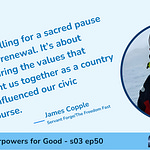If you’re in emotional distress or suicidal crisis, find help in your area with Find a Helpline.
When you purchase an item after clicking a link here, we may earn a commission. It’s an easy way to support our work.
U.S. Army General Gregg Martin was forced to retire from the military when he experienced a mental health crisis. He shared that story in detail when I spoke with him last December.
His book, Bipolar General: My Forever War with Mental Illness, is now available.
In my latest conversation, we focused more on his success since his diagnosis.
A vital part of thriving for Gregg has been finding a sense of purpose. He explains:
Once I began my road to recovery seven years ago and moved to Florida, my big question was, “What is my mission? What is my purpose?”
I played around with that for a couple of years and talked to different mentors, read a lot of literature on this subject and looked to spiritual materials as well. Then, finally, after a couple of years, it came to me that my mission was staring me right in the face.
It was contained inside my brain, which was sharing my bipolar story to help stop the stigma, promote healing, and save lives. I mean, that is a mission that is important. It's larger than myself. It serves others.
Having a deep sense of purpose contributes to good mental health, whether or not you have a mental health diagnosis.
Gregg shared some advice to help you find your purpose. Reflecting on his experience, he suggested that deep reflection is a crucial first step, taking time to write down your thoughts.
He proposes a thought question: "How can I use my experiences, the good, the bad and the ugly, to contribute to society, to help other people, to help them better deal with problems and challenges they may be having?”
By pondering that question, you can find a sense of mission and purpose that is unique to you. The feeling of ownership and personal connection could empower and energize you.
Throughout his successful career, including the period following retirement, Gregg has deployed his superpower, an ability to accomplish hard things.
AI Episode Summary
Retired U.S. Army General Gregg Martin joins host Devin Thorpe on the Superpowers for Good Show to discuss his book and advocacy for mental health awareness.
Gregg was diagnosed with bipolar disorder, which led to his retirement from the military, and he has since become an advocate for mental health.
His book, Bipolar General, tells the story of his military career, mental health crisis, and recovery, providing lessons and insights.
Gregg believes that purpose is important in overcoming mental health challenges, as it provides motivation and a sense of meaning.
He suggests reflecting on experiences and passions to determine how they can be used to contribute to society and help others.
Gregg also emphasizes the importance of positive self-talk, exercise, and finding spiritual inspiration in building self-confidence and motivation.
While the priority of mind, body, and spirit may change depending on the situation, all three aspects play a role in managing mental health.
Martin's book, published by the Naval Institute Press, is available on Amazon, Barnes and Noble, and other platforms.
He can be hired as a speaker through his website, generalgreggmartin.com, or via email at GreggMartin79@gmail.com.
Martin expresses gratitude for the work being done by Thorpe and the Superpowers for Good Show in helping people and saving lives.
How to Develop the Ability to Accomplish Hard Things As a Superpower
Gregg admits that his bipolar brain gave him an advantage in developing his ability to accomplish hard things. He explains:
Throughout my life, I've had the opportunity to accomplish many big things–graduate of West Point, graduate of Army Ranger School, have run seven sub-three-hour marathons, including a 2:36. I got into MIT, where I earned two master's degrees and a Ph.D. in a relatively short period of time. I had a successful army career, which was very challenging; I rose all the way to two-star general.
I've been married for 40 years, have three terrific sons and a grandson.
So I've been able to do a lot of things. I do have innate God-given talents. But a big part of this superpower is having a bipolar brain, which has pumped, injected and flooded my brain over the years with excess biochemicals, principally dopamine. What that has done is take whatever talents I have and amplify them. So, it's given me extra energy, drive, enthusiasm, creativity, problem-solving abilities, and an extra charged-up personality that enables me to lead others and get along well with people. So, that has been my primary superpower, and I've had a biochemical advantage with my bipolar brain.
Careful not to lecture, preferring to lead by example, Gregg shared insights about how he manages to work through periods of depression as a guide to help others develop the capacity to do hard things:
When I was in a period of depression, which I had many with my bipolar life, here are the things that I would do to help lift me up.
Number one, I would tell myself, Hey, this is just a temporary condition. I'm really strong, confident, smart. I can do great things, and I would do positive self-talk for myself.
I would try to exercise vigorously, do lots of push-ups and pull-ups and lift weights–something to rev myself up. Or I'd go out on a hard run and do some wind sprints or run up hills and again try to get the chemicals in the blood going in my brain.
Then I'd go to spiritual things. This is kind of an aggressive spiritual thing, but I, over the years, had memorized lots of Bible verses. I focused on the powerful ones–hundreds of them in the Bible that tell you you can do this. Trust in God; you can rely on God, and you can accomplish anything. Don't be fearful, be strong, be courageous.
So, I had about a dozen of those verses memorized, and I would repeat them over and over and over in my head to lift my spirit and make me feel more confident, more powerful, better so I could do the things that I had to do.
To recap, he suggests three simple things:
Positive self-talk
Vigorous exercise
Reciting inspirational messages aligned with your faith
By following Gregg’s example and advice, you can thrive with–or without–a mental health diagnosis and increase your ability to accomplish hard things. With practice, it could become a superpower that enables you to do more good in the world.
Guest Profile
Gregg Martin (he/him):
About Mental Wellness Warriors: A loose collaboration of like-minded people with a passion for mental health who speak, confer and write
Website: bipolargeneral.com
Biographical Information: Gregg F. Martin, Ph.D., is a 36-year Army combat veteran, retired major general, and bipolar survivor, thriver, and warrior. He commanded an engineer company, battalion and a brigade in combat. A former president of the National Defense University, commandant of the Army War College, and commander of Ft. Leonard Wood, he is a qualified Airborne-Ranger-Engineer soldier and Army Strategist. He holds advanced degrees from MIT, the Naval War College, and the Army War College, and a BS degree from West Point. The author of BIPOLAR GENERAL: My Forever War with Mental Illness lives with his wife in Cocoa Beach, Florida.
Twitter Handle: @GenGreggMartin
Linkedin: Gregg F. Martin

















